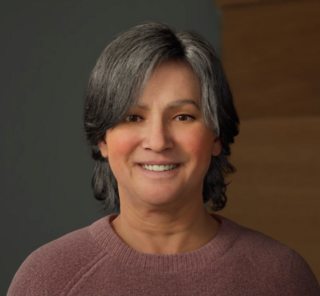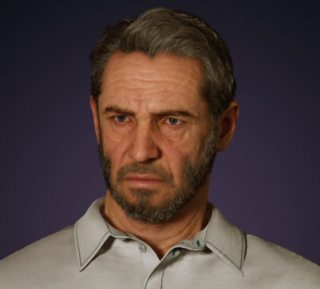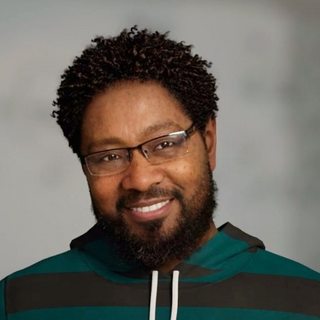Professor Carla Donato

Fields of Study: Sustainability, Urban Design, Hydrology
Notable Work:
The Water Paradox (1999)
Man vs Nature: Fighting Climate Change (2003)
Infrastructure in the 22nd Century (2012)
Against the Tide: Adapting to the New Water Crisis (2020)
Women Vs. Nature: Feminism and the Climate Catastrophe(2021)
Carla Donato is a beloved professor at U of C, leading the University’s world-renowned Environmental Studies department, which she has only recently stepped back from. Born to a wealthy family in Buenos Ares, Carla felt a deep spiritual fascination with the natural world around her from a young age. Naturally restless and relatively privileged, she traveled extensively in her teens and early twenties, actively seeking out challenges to her own worldview. If she heard someone tell her that she shouldn't go somewhere because it wasn't safe, her instinct was to go there anyways.
Stepping outside of a relatively sheltered upbringing, Carla found herself bearing witness to the best and worst of humanity. In her travels she found kindness and generosity amidst the pernicious, intersecting challenges posed by economic exploitation and environmental degradation. Of particular note and interest was the difficulties posed by water insecurity, an issue that she eventually made the focus of her doctoral dissertation. Eventually she would move to the United States, drawn to the at-that-time unorthodox, and radical views of the University of Cascadia's School of the Environment. Her twenty-year career at the University led to her eventual promotion to the head of that department.
In Professor Donato's view, it would be a mistake to see activism and academia as necessarily distinct, and she is known for taking numerous well-publicized stands on both local and international environmental concerns. She is known to be a frequent figure at political demonstrations, and is seen as something of a revered elder throughout various environmental organizations in the Pacific Northwest.
As a professor, she is a popular as a kind and generous teacher who is known for being quite lenient with grades in the event of extenuating circumstances. While she is an engaging lecturer at times, she is often derided for her tangents and asides, and is easily derailed from the topic at hand. Her office hours are often spent helping students with a passion for activism network to various causes, and she is eager to bring together those with similar interests.
After she recently tweeted a profane call-out to a local elected official, subtly implying he was corrupt, she was asked to consider stepping back by the University administration. In response, she has resigned her leadership of the School of the Environment though remains as a tenured Professor at the University. She was drawn to the research trip partly through correspondence with the island's researchers, and partly out of a need to take some time to reflect on her long career.
Professor Peter Harrison

Professor & Associate Chair, Department of History
Associate Professor, Department of Philosophy
Fields of Study: Atlantic World, Economy, Technology and Society, Cultural Conflict, Violence and Genocide, Ethics, Aesthetics.
Notable Work:
Patterns of Decline: Civilization and Collapse (2002)
Life on the Brink: Six Lessons from History (2013)
Cancel Chaos: Winning Back the Future (2021)
Peter Harrison is a renowned professor of the humanities at U of C, and until recently had been mostly seen as a feather in the University’s cap. Born to an expatriate family in Veracruz, Mexico, he spent his formative years with a particularly worldly upbringing, with his family only returning to the continental United States at the age of sixteen. During his formative years he flirted with various leftist causes, inspired by the Zapatista movement. Nevertheless, he would later deride these experiences as necessarily immature, claiming that most leftist movements were motivated less by a love of the poor and more by a hatred of the rich, which he found unacceptably pathological.
As a young adult, Peter was heralded as a star student, winning a full ride to Columbia University and distinguishing himself with a masters’ thesis concerning the modern effects of migration patterns in the Americas. He would follow several of his peers into the University of Cascadia, where he would establish himself as a charismatic, if not unusual force in the Humanities. Despite the University’s broadly progressive bent, Harrison would once again brush up against the emergence of what he viewed as particularly frivolous disciplines and schools of thought, with a particular disdain for continental philosophy.
In an era of increasing political polarization, Harrison has found himself in the spotlight for his outspoken opposition to what he views as “dangerously postmodern” ideas entering the mainstream. A viral video of Harrison being confronted at a student protest titled “Peter Harrison Vs. Woke Liberals” has drawn both wide praise and condemnation.
In spite of this, he is known as a professor to be exceptionally polite and professional, and refuses to be baited by students who have learned of his views and attempt to start arguments with him in class. He is particular about reserving debate and discussion for his office hours. His lectures are considered to be engaging, if not a bit rambling. Harrison is usually accommodating in regards to due dates and grades, provided one works within his guidelines and pays attention in class.
In light of several recent invitations to make media appearances, Harrison opted to join the trip at the last minute as a means of stepping aside to spend time working on a political treatise - and to avoid near-constant requests for interviews.
Professor Mark Coleman

Fields of Study: Cognitive Science, Machine Learning, Robotics
Notable Work:
Exploration of Adaptive Social Intelligence in Decentralized Systems (2021)
Mark Coleman was only recently hired at the University of Cascadia, though he has been a fixture at the institution for some time. Born in nearby Tacoma, Mark showed a technical aptitude from a very young age. As a child, he was drawn to anything mechanical, curating a profound need to know how everything worked. His voracious reading habits were matched by a seemingly boundless energy, and he loved to regurgitate facts and figures to anyone who would listen. Quickly moving on from Legos to circuit boards and radios, Mark was well-prepared when he walked into his freshman year of high school and discovered a small but enthusiastic robotics club. They would go on to place extraordinarily well in regional and national robotics competitions, thanks in large part to Mark's tireless ingenuity. Though he was easily engrossed in tasks he found for himself, he was quickly bored by schoolwork and often found it difficult to pay attention in class. This translated into less than stellar grades throughout secondary school, and he barely gained entry to the University's Bachelor of Science program.
However, Mark quickly found his calling in post-secondary school. More often than not he was now surrounded by others like himself, who shared his fascination with complex and self-evolving systems. His masters' thesis was an exploration of Control Theory, expanding on the work done by U of C alumni Leon Weis, a renowned cyberneticist philosopher and mathematician. His doctoral work has built on the adaptation and emulation of natural systems in robotics, and he is well-respected by colleagues in this field.
Outside of his professional work, Mark is regarded as a bright and friendly person who tends to take a passive role in most social interactions. Rarely does he ever speak without some measure of deliberation, and he is known for holding long pauses in a conversation until he is completely sure of what he wants to say. That said, he isn't slow to act and is always willing to lend a helping hand for others. Much of his social interaction outside of his work is online, or in the local tabletop scene. Mark has a particular fondness for Magic: The Gathering, and his usual reserved manner of speaking often gives way to good-natured ribbing during a game, the structure of the interaction giving him much needed space to relax.
Professor Coleman is regarded as an excellent instructor, who has a good grasp of how to explain complex concepts to his students. He is eager to see his students succeed and doesn't regard himself as having a monopoly on the best, or even the most correct ideas. That said, there is little wiggle room in the subjects he teaches when it comes to grades, and he doesn't often take the few chances he has to be lenient. To Professor Coleman, the only important truths are those that can be tested and verified and understood completely; consequently, he doesn't hold the most charitable views of his colleagues' work in the humanities.
Mark's role on the trip is to consult with Janus-Hayes researchers working on autonomous drones, using the island as a testing ground. As well, he is heavily involved as as an associate instructor for some of the coursework that has been developed for the trip.
